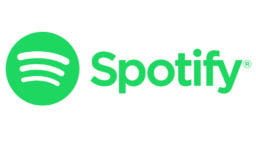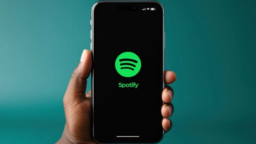In six months’ time, the fun and games begin anew.
MBW understands that Universal Music Group‘s two-year licensing deal with Spotify will officially expire at the end of Q1 next year.
In the subsequent months, the platform’s existing deals with both Sony Music Entertainment and Warner Music Group will also come to a close.
Last time round, in 2017, Spotify pulled off a business-saving masterstroke, managing to convince all three major labels to agree to sacrificing the percentage of the streamer’s revenues they take in royalties.
Sources tell MBW this agreement saw Universal, Sony and Warner – as well as indie licensing company Merlin – reduce their share of pro-rated net revenue from Spotify down from 55% to 52%.
This, in turn, helped Spotify improve its annual gross margin by seven points, up from 14% in 2016 to 21% in 2017.
Things have continued to trend upwards: in the past quarter, to end of September, Spotify’s gross margin hit 25.3%.
Barry McCarthy, Spotify’s CFO, explained back in March at the firm’s Investor Day how it was able to convince the labels to lessen their share of revenue.
“That wasn’t a magic trick,” he said. “The labels were acting in their own self-interest to shore up Spotify’s economically-challenged margin structure, because of the growing importance of a healthy Spotify to the entire music industry ecosystem”.
Since that comment, tensions at the major labels have begun to rise over the prospect of Spotify once again asking for margin relief.
Senior executives at all three major labels have told MBW of their annoyance over Spotify using podcasts, low-royalty ‘fake artists’ and other tactics to further reduce the percentage of revenues paid out to large music rights-holders – not to mention Spotify’s recent direct licensing and distribution deals with independent artists, which could help it achieve the same goal.
As one major label big cheese memorably told us in August: “If Spotify comes in here [during the 2019 re-negotiations] and asks for any sort of margin improvement, we’re going to laugh them out of the room.”
Today (November 1), MBW got a chance to ask McCarthy what those same labels can expect from next year’s re-negotiations – and whether Spotify will once again ask the majors to give up baseline gross margin in order to help his company’s finances.
“I’m trying to reframe the negotiation away from win/lose,” said McCarthy. “It was clear last time we negotiated that the reason we were able to improve the gross margin from 15 percentage points to [today’s] 25 percentage points was because at 15% there was no viable, sustainable business model – it was in the labels’ economic interest for [Spotify] to become self-sustaining.
“The path forward is is not for [the labels] to hand us an additional pile of gross margin points [just] because we’ve become large.”
“So, what’s the path forward? The path forward is is not for [the labels] to hand us an additional pile of gross margin points [just] because we’ve become large.
“The path forward is that we provide value and services to them and their artists to help grow their business in a way that hasn’t previously been available… enabled by insights we gain from our users because we understand their listening tastes and can see what they’re engaged in.”
He added: “We are able to shape the demand curve because of the insights that we’ve developed about [users’] particular music tastes; we’re able to drive engagement and discovery in ways that haven’t previously been available to artists or to labels.”
In other words, Spotify isn’t going to enter those major label offices pleading for margin relief because of a flimsy business model.
Instead, it’s going to go in those rooms selling the dream: insights and tools which will make the major labels more efficient, stronger at talent spotting and better able to break acts globally.
“We’ve developed tools that that enable labels to track user engagement [of] content that they’re promoting, on and off [the Spotify] platform, that give them a degree of insight that’s never before existed,” said McCarthy. “That’s another example of a value-add that is newly developed – with more to come.”
“Our strategy is to license intellectual property, it’s not to own it.”
Such tools, of course, aren’t just limited to labels.
Artists and their managers already have access to a suite of them, via the Spotify For Artists platform – which is used by 250,000 artists every month.
“We spoke at length at the Investor Day about the development of the two-sided marketplace,” said McCarthy today. “We’ve made it clear that our strategy is not to become a label and not to compete with labels; it’s to license intellectual property, it’s not to own it.”
Speaking on a call with media and analysts this morning in New York, McCarthy briefly covered Spotify’s 9% stakeholding in Tencent Music Entertainment – a company which is itself set to float in the United States before the end of this year.
“Our mainland China strategy is our investment in Tencent Music,” he said. “We have no plans to compete with them in China.”
The topic then returned to those crucial 2019 label renegotiations – and what Spotify ultimately wants to achieve.
“We’ve developed a mutual dependency on each other.”
“Every time we’re approaching a re-negotiation, there’s lots of written in the press about it,” said McCarthy. “The posturing [in the media] contributes to the tone of the negotiations, I guess you could say.”
He added: “We’re feeling quite constructive about the business and the rate of revenue growth that we’ve been driving for our label partners. I think they’re enthusiastic about it as well.
“We’ve developed a mutual dependency on each other. And It’s in both our economic interest to achieve a constructive outcome.”
Music Business Worldwide





